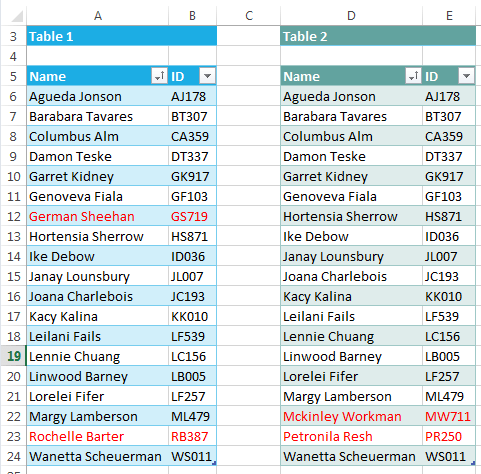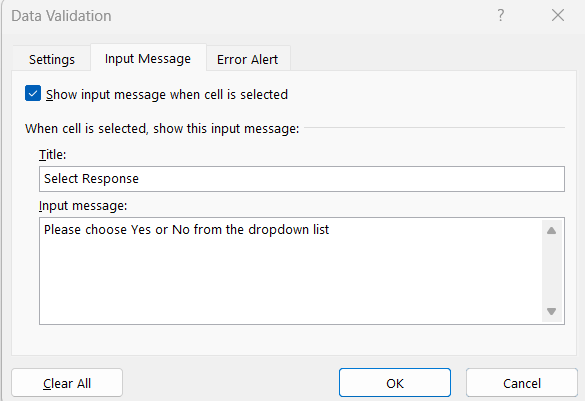Compare Columns in Excel: Find Duplicates Easily

Excel is a powerful tool for data analysis and management, offering a plethora of functions and features to handle extensive datasets. One common task many users encounter is finding duplicate entries across columns. Whether you're a business analyst looking for recurring customer data or a researcher trying to avoid redundant information, this skill is invaluable. Here, we'll explore different methods to compare columns in Excel and identify duplicates efficiently.
Understanding Duplicates in Excel
Duplicates in Excel refer to entries that appear more than once within a dataset or across different datasets. These could be identical values or variations that, despite being slightly different, essentially represent the same item. Identifying these duplicates is crucial for:
- Removing redundancy
- Data cleaning
- Ensuring data integrity
To start, let's delve into the methods you can use.
Method 1: Conditional Formatting
Conditional Formatting in Excel provides a visual cue for duplicates:
- Select the range of cells you wish to compare.
- Go to the Home tab on the ribbon.
- Click on Conditional Formatting, then choose Highlight Cells Rules, and finally Duplicate Values.
- Excel will highlight all duplicates with the chosen format, typically red fill.
⚠️ Note: This method visually flags duplicates but does not alter the data or provide further analysis.
Method 2: Using Formulas
For more control over how duplicates are identified, you can use formulas:
- COUNTIF for a single column:
If this formula results in a number greater than 1, then the value in A1 is a duplicate within column A.=COUNTIF(A:A,A1) - VLOOKUP for comparing two columns:
This formula looks up each entry in column A within column B, returning "Duplicate" if the value is found.=IF(IFERROR(VLOOKUP(A1, $B$1:$B$100, 1, FALSE), 0) = A1, "Duplicate", "Not Duplicate")
Table: Comparing COUNTIF and VLOOKUP for Duplicate Detection

| Method | Usage | Advantages |
|---|---|---|
| COUNTIF | Finding duplicates within a single column | Simple, easy to implement for beginners |
| VLOOKUP | Comparing two columns for duplicates | Flexible for different scenarios, more precise |
Method 3: Advanced Filtering
Excel's Advanced Filter feature allows you to filter out unique records:
- Select the range you want to filter.
- Go to the Data tab, then click on Advanced under the "Sort & Filter" section.
- In the Advanced Filter dialog box:
- Choose "Filter the list, in-place" or "Copy to another location" depending on your needs.
- Check "Unique records only."
- Click "OK."
Excel will then show only the unique entries, helping you to identify and perhaps eliminate duplicates by comparing what remains.
Method 4: Using Excel's 'Remove Duplicates' Feature
This is perhaps the most straightforward way to get rid of duplicates:
- Select the range of data.
- Go to the Data tab.
- Click on Remove Duplicates.
- Choose the columns you want to consider for identifying duplicates, then click OK.
💡 Note: This method modifies your dataset by removing duplicate rows. Ensure you have a backup of your data before proceeding.
Final Insights
Identifying duplicates in Excel is not just about eliminating redundancy; it's about enhancing the accuracy and reliability of your data. Each method we've explored has its place:
- Conditional Formatting for a quick visual check
- Formulas like COUNTIF and VLOOKUP for precise and flexible analysis
- Advanced Filter to visually sort through unique records
- 'Remove Duplicates' for direct action on the dataset
By understanding and applying these techniques, you can streamline your data management process, making your work in Excel more efficient and your data analysis more insightful. Whether for personal or professional use, mastering these tools ensures your datasets are clean, accurate, and optimized for whatever analysis or presentation comes next.
What is the easiest way to find duplicates in Excel?
+The easiest method for spotting duplicates visually is through Conditional Formatting. It provides instant feedback with minimal setup.
Can I use these methods to compare duplicates between different sheets?
+Yes, formulas like VLOOKUP can be adapted to check for duplicates across different sheets by referencing the correct range in the formula.
Will the ‘Remove Duplicates’ feature alter my original data?
+Absolutely, ‘Remove Duplicates’ will permanently delete duplicate rows from your dataset. Always make a backup of your data before using this feature.
Related Terms:
- excel duplicate formula two columns
- show duplicates two columns excel
- highlight duplicates between two columns
- vlookup to compare two columns



